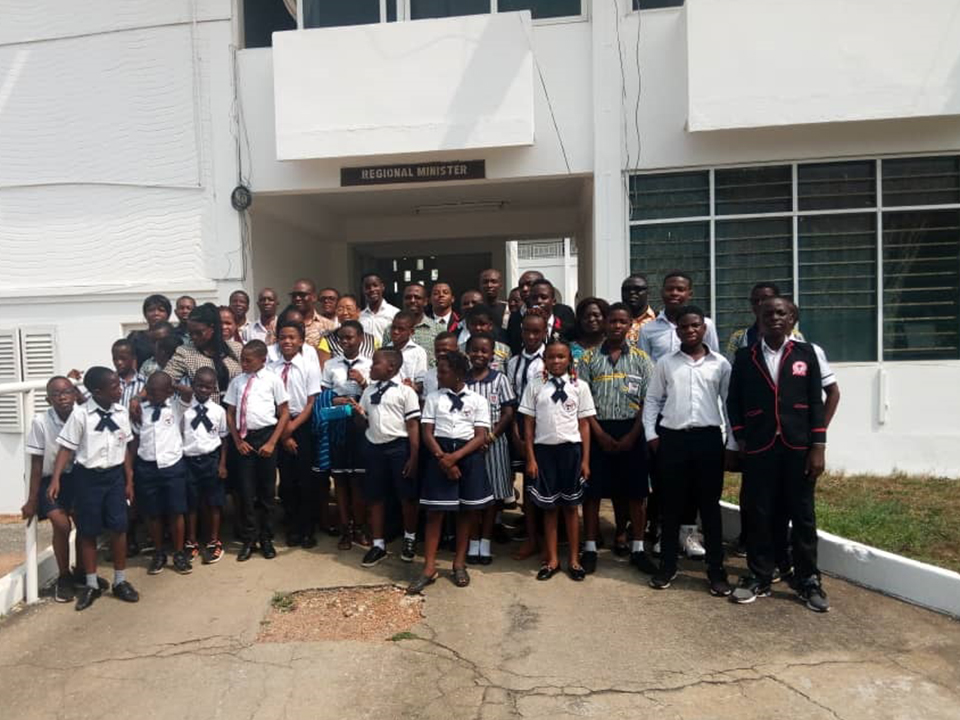The University of Cape Coast has won the 2018 edition of the Impact Africa Debate Championship & Intercontinental Public Speaking Contest ahead of University of Ibadan Nigeria and the Kwame Nkrumah University of Science and Technology which was held from the 23rd to 27th of July at the Kwame Nkrumah University of Science and Technology.
Participating in the tournament were the University of Cape Coast & Kwame Nkrumah University of Science and Technology from Ghana, University of Ibadan, Kebbi State University of Science and Technology & Federal University Dustsin-ma from Nigeria, Fourbay College University from Sierra Leon and Zimbabwe Open University.
Impact Africa Debate Championship & Intercontinental Public Speaking Contest is aimed at bringing young leaders together, to exchange their cultures and shape their speaking skills as well as to groom the young to take up leadership on the continent.
Emerging winners of the public speaking contest was Fourbay University College, Sierra Leon.
The University of Cape Coast was represented by its debate society which presented six teams & below was how they fared
1. Caleb Otabil & Emmanuel Mylo Dadzie( Finalists & Winners)
2. Latif Lawrence Jorhowie & Ellen Eyiram Cofie(Semi Finalists)
3. Samuel Kojo Pinkrah & Emmanuel Nwanwa Mensah(Semi Finalists)
4. David Mensah & Jessica Afful Tuleassi
5. Eugene David Dzagbley & Gertrude Nkrumah
6. Obed Frempong Aboagye & Ernestina Siaw Amoako
Medals won by the students included;
1. 2nd Best Debater, Emmanuel Mylo Dadzie
2. 3rd Best Debater; Ellen Eyiram Cofie
3. 3rd (tie) Best Debater; Latif Lawrence Jorhowie
4. 4th Best Public Speaker; Emmanuel Mylo Dadzie
5. 8th Best Debater; Caleb Otabil
The 2017 edition which was held at Botswana was won by the Igbinedion University Nigeria while the public speaking contest was won by the Zimbabwe Open University.
Receiving the trophy, the Dean of Students Affairs, Prof. Koawo Edjah, commended the team for the sterling performance at the contest and the great honour they’ve done the University. He assured them that the Office of the Dean of Students would continue to support them to win more laurels in subsequent competitions. “This achievement is a motivation that you have made good use of the knowledge we have imparted unto you. You have recognised public speaking as your talent so you need to work and I can assure you that you will become great leaders in this country and beyond” he advised them.


